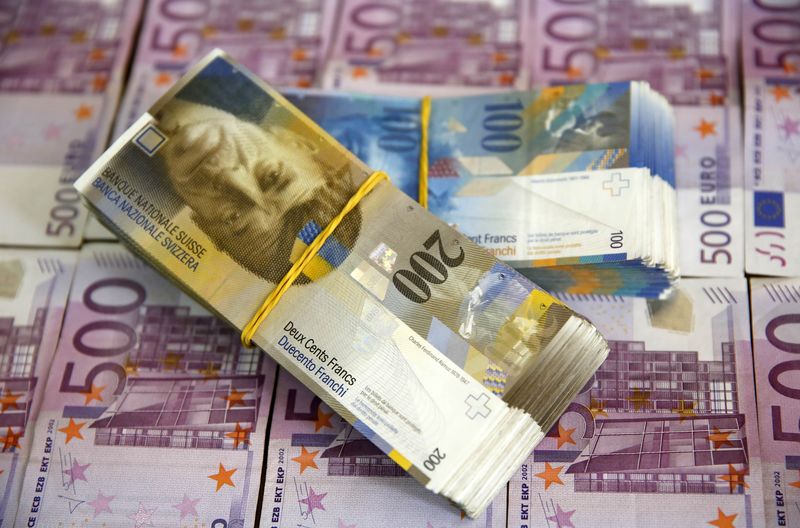ZURICH (Reuters) - Switzerland's economy will contract this year as the uncapped Swiss franc's surge makes the country's exports more expensive and lower crude prices hit oil trading activity, the KOF Swiss Economic Institute said on Wednesday.
It slashed its growth forecast for 2015 to -0.5 percent from the 1.9 percent it had predicted in December and said it expects no growth next year, having previously forecast a 2.1 percent expansion.
The Swiss National Bank upended financial markets by scrapping the franc's three-year-old cap against the euro earlier this month, sending the currency soaring and stoking fears for Switzerland's export-driven economy.
After updating its models to put the franc at parity with the euro (EURCHF=), the KOF institute said it now predicted a 2015 recession, defined as two consecutive quarters of negative economic growth.
"The KOF is expecting a short recession in the summer semester, with gross domestic product falling by 0.5 percent during 2015 as a whole," the KOF economists said in a statement.
The institute said a tumble in oil prices to around $50 (33 pounds) per barrel was also a factor, citing a likely fall in earnings from the international oil trade, which is largely administered from Switzerland.
KOF said the strong franc would have the biggest impact on the sale of Swiss goods sold abroad, and forecast a 1.4 percent fall in exports in 2015.
The rate of registered unemployment will increase from 3.2 percent in 2014 to 3.4 percent this year and 4.1 percent in 2016, the KOF said, while consumer prices will fall by 1.5 percent in 2015 compared with a previous -0.1 percent forecast.
KOF's predictions come as Berne discusses ways to protect the Swiss economy from the fallout of a far stronger franc.
On Tuesday, the Swiss parliament agreed to debate longer shop opening hours to give tourism operators a shot in the arm, while the government gave the green light for firms to shorten working hours if needed.
On Wednesday, the head of Switzerland's left-wing Social Democrats warned he would oppose lowering wages, telling Swiss newspaper Tages-Anzeiger that this would only exacerbate the problem, because purchasing power would also suffer.
Swiss central bank board member Fritz Zurbruegg said last week it was too early to gauge whether the economy might enter recession.

Switzerland's economy minister said after the SNB abandoned its currency cap that the government did not consider it appropriate to launch a programme to support the economy and domestic demand.